VE Day: Leaders lay wreaths at Cenotaph on 70th anniversary of peace in Europe
The 70th VE Day served as a reminder of a time when political leaders were united by one cause, says Simon Usborne
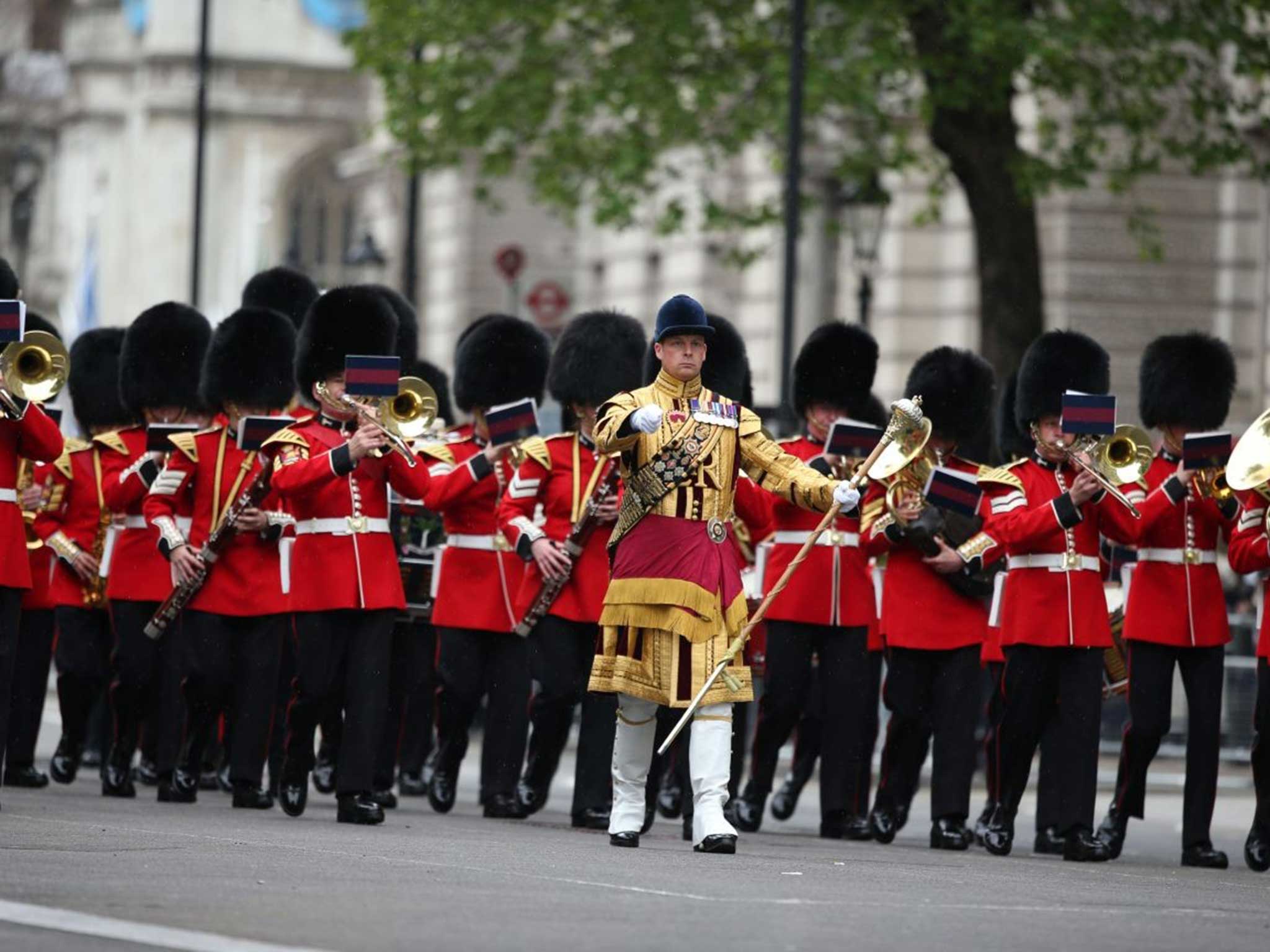
Your support helps us to tell the story
From reproductive rights to climate change to Big Tech, The Independent is on the ground when the story is developing. Whether it's investigating the financials of Elon Musk's pro-Trump PAC or producing our latest documentary, 'The A Word', which shines a light on the American women fighting for reproductive rights, we know how important it is to parse out the facts from the messaging.
At such a critical moment in US history, we need reporters on the ground. Your donation allows us to keep sending journalists to speak to both sides of the story.
The Independent is trusted by Americans across the entire political spectrum. And unlike many other quality news outlets, we choose not to lock Americans out of our reporting and analysis with paywalls. We believe quality journalism should be available to everyone, paid for by those who can afford it.
Your support makes all the difference.It was the day that sounds of gunfire gave way to cheers and church bells across a continent. Exactly 70 years later, political leaders laid down their differences, and their wreaths, to join veterans in two minutes of silence to mark the anniversary of Victory in Europe Day.
In central London, artillery from nearby Wellington Barracks echoed down Whitehall at 3pm to signal the start of the silence, broken in front of the Cenotaph only by a spectator’s mobile phone. Its ringtone: The Dam Busters March.
After a rendition of the Last Post, the Duke of York led the laying of wreaths, followed by David Cameron, Ed Miliband and Nick Clegg, who stood shoulder to shoulder – perhaps for the last time.
Randolph Churchill, great-grandson of Winston Churchill, then read an extract from the former prime minister’s speech on 8 May 1945. The words, which had announced Germany’s surrender, triggered celebrations across Britain and Europe.
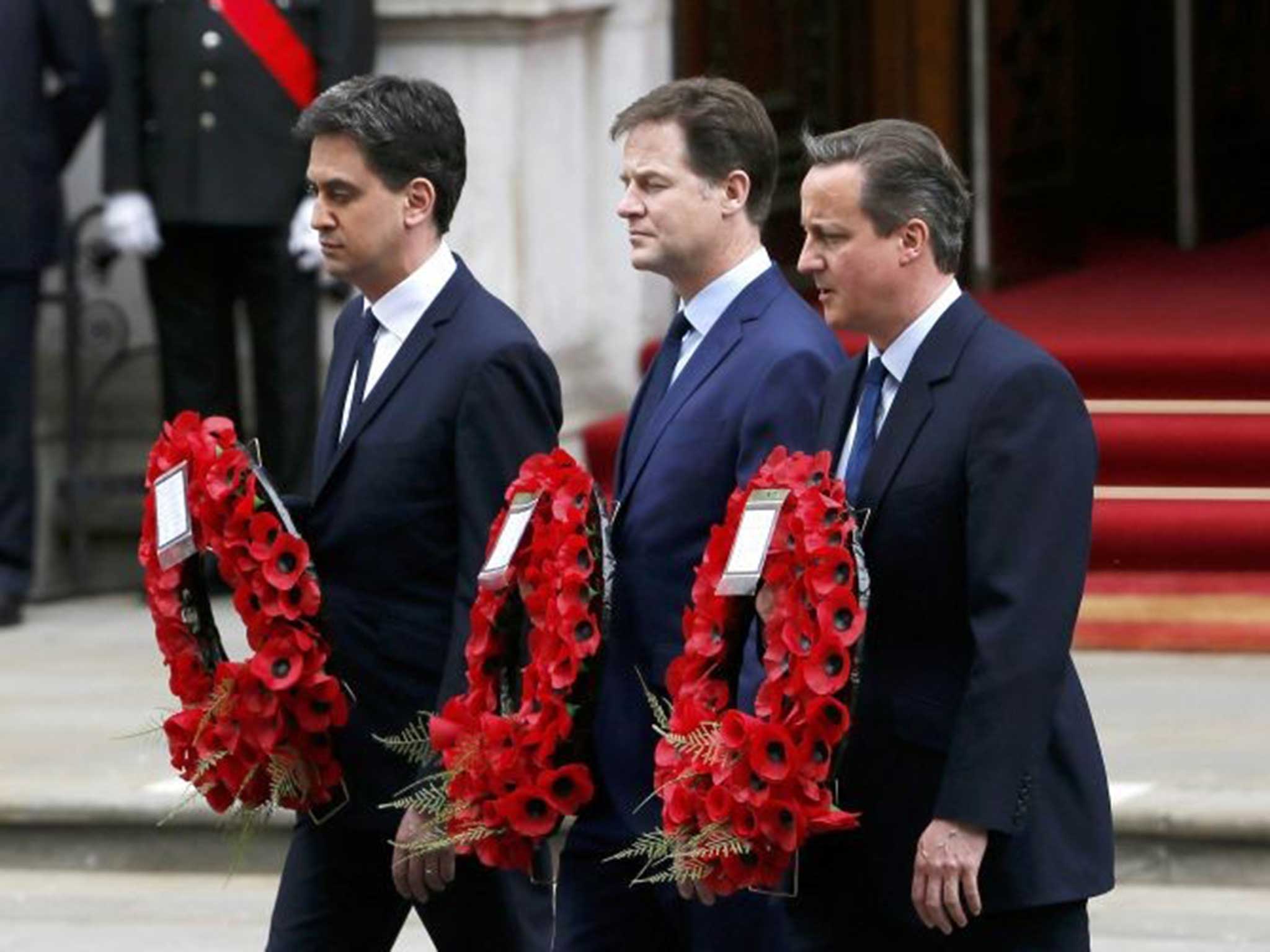
“I was at school and remember we had a huge bonfire on our street,” said Sheila Hastings, 79, who had travelled from New Zealand, where she moved from Mitcham in South London in 1958. “There wasn’t a street party because there wasn’t enough food but the fire was so big we burned a hole in the middle of our road.”
At 9.30pm, the Queen was due to light a beacon at Windsor Castle, 70 years after she left Buckingham Palace to dance with revellers in the streets of London. Almost 250 beacons were due to extend the chain of “flames of peace” to the northern tip of Britain.
Ms Hastings, who accompanied her sister Jacqui Yellen, 74, was three years old when war broke out. As evacuees in Guildford, the children grew up fearing for the wellbeing of a father they never got to know. A soldier in the Royal Ordnance Corps, he fought in North Africa, Italy and Austria.
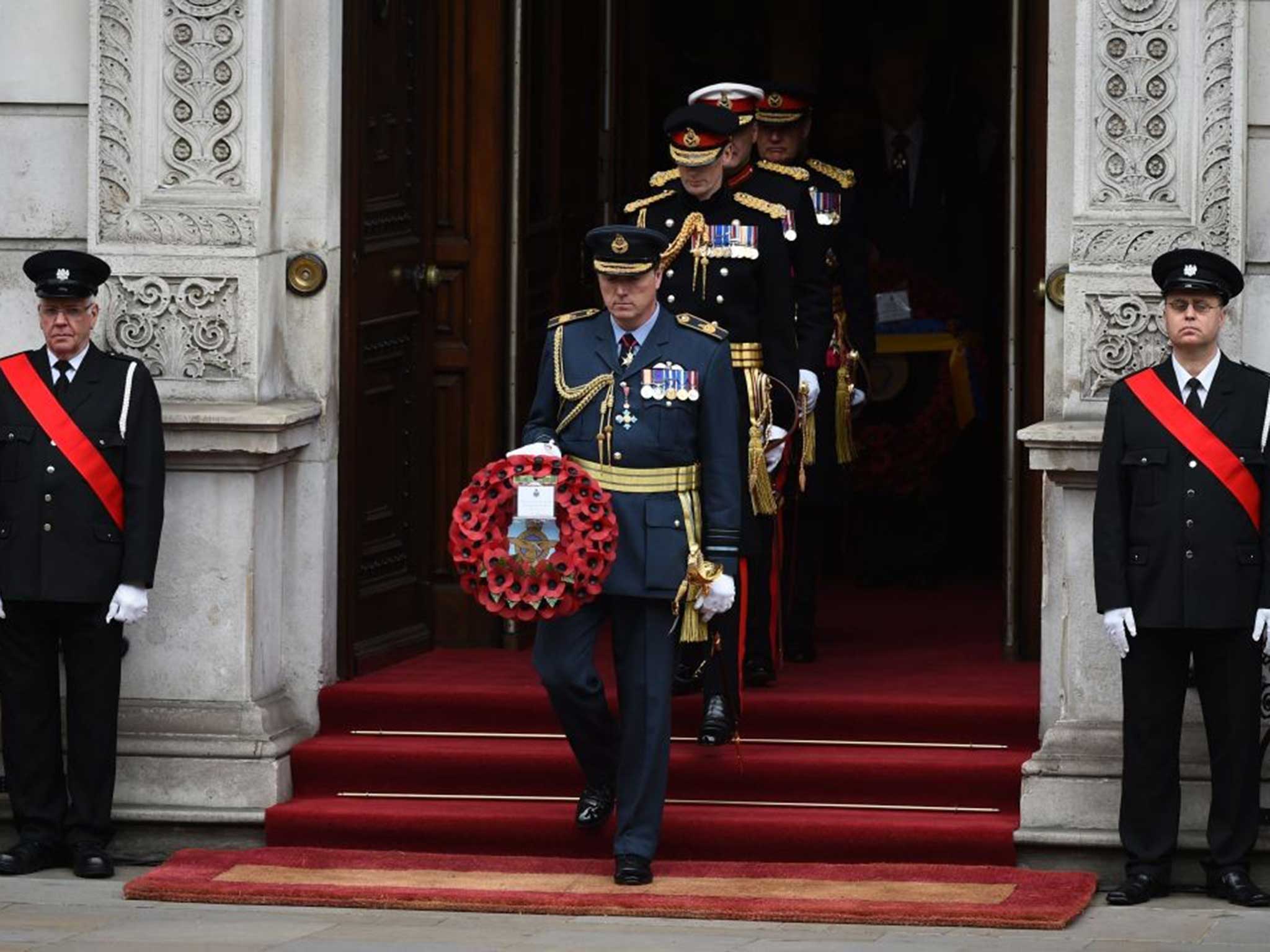
“We missed him terribly,” Ms Hastings said before the service. “My mother had four children, and she was a woman alone with bombs dropping everywhere.” The family later moved to Bristol, where a bomb blew the roof and windows from their home.
“We have to remember,” she added. “And we have to remember that it is still going on. Let’s face it, even worse things are happening now. But this is my thing to remember, that on this day I knew my Dad would come home.”
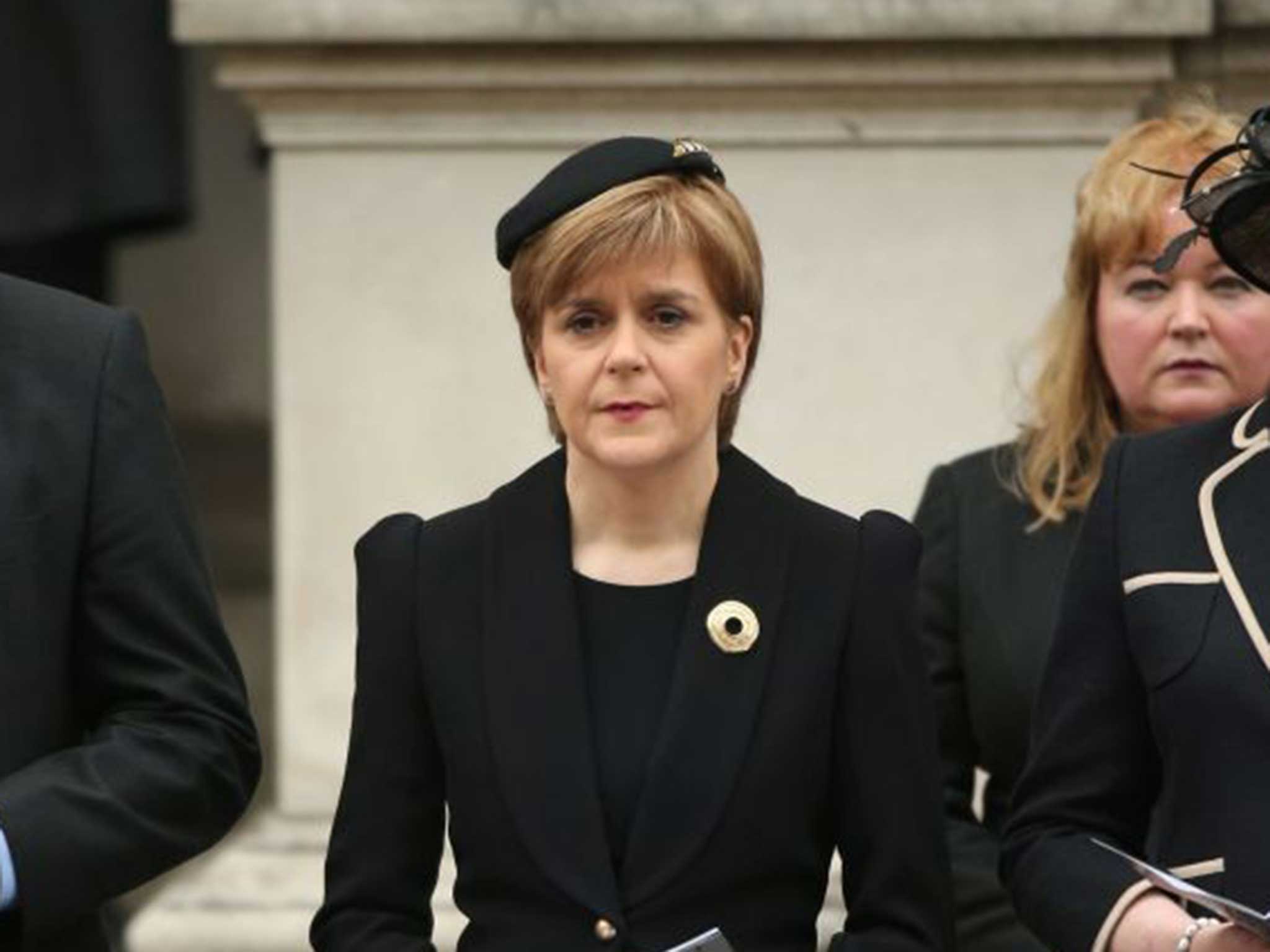
For some, the memories remained painful after seven decades. One man, who had pinned three tarnished medals to a well-worn uniform, could only say: “My father was..” before he could no longer speak. He turned his eyes towards the Cenotaph to observe the silence.
Derek Smith, 79, had travelled from Forest Hill in South-east London, where a German bomb forced his family out of its home, and killed his grandmother. They retreated to Surrey, before returning in 1942, only to be bombed again.
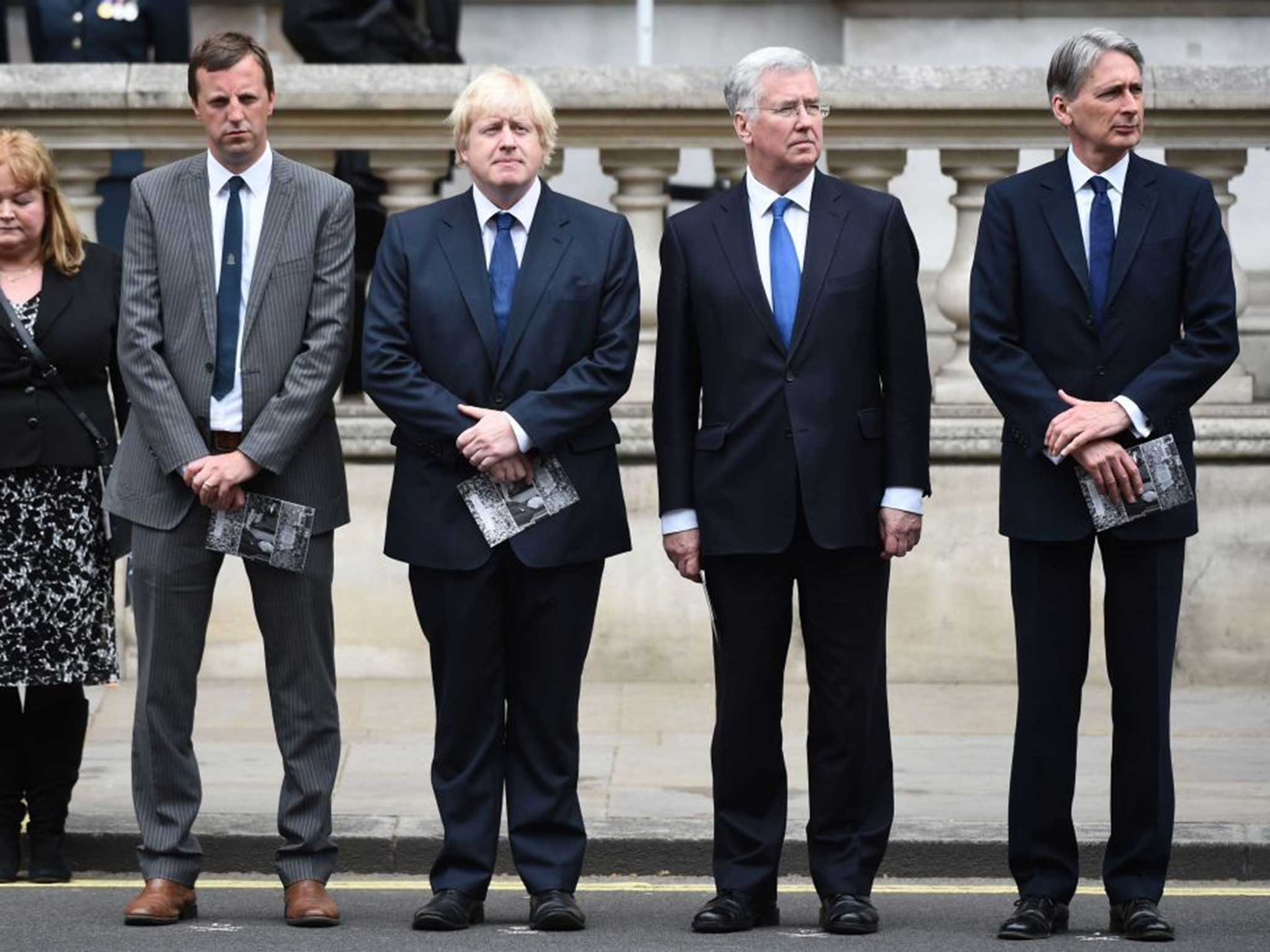
“We weren’t allowed to come up here to celebrate,” Mr Smith said after the 30-minute service. He was nine on VE Day. “But we had celebrations at home on the bomb sites. We burned all the floorboards. Even then, war was all I had known.”
Mr Smith’s father had been a pilot in the First World War, and was an officer in the Air Transport Auxiliary in the Second. He survived both battles.
As veterans walked and wheeled off Whitehall, waving and exchanging applause with the crowd, Mr Smith, himself a veteran, started to cry. A woman moving through the crowd offered him a carton of orange juice. “Oh dear,” he said after more than a minute, adding: “The war made me appreciate life, my family and my parents, who did so much for me.”
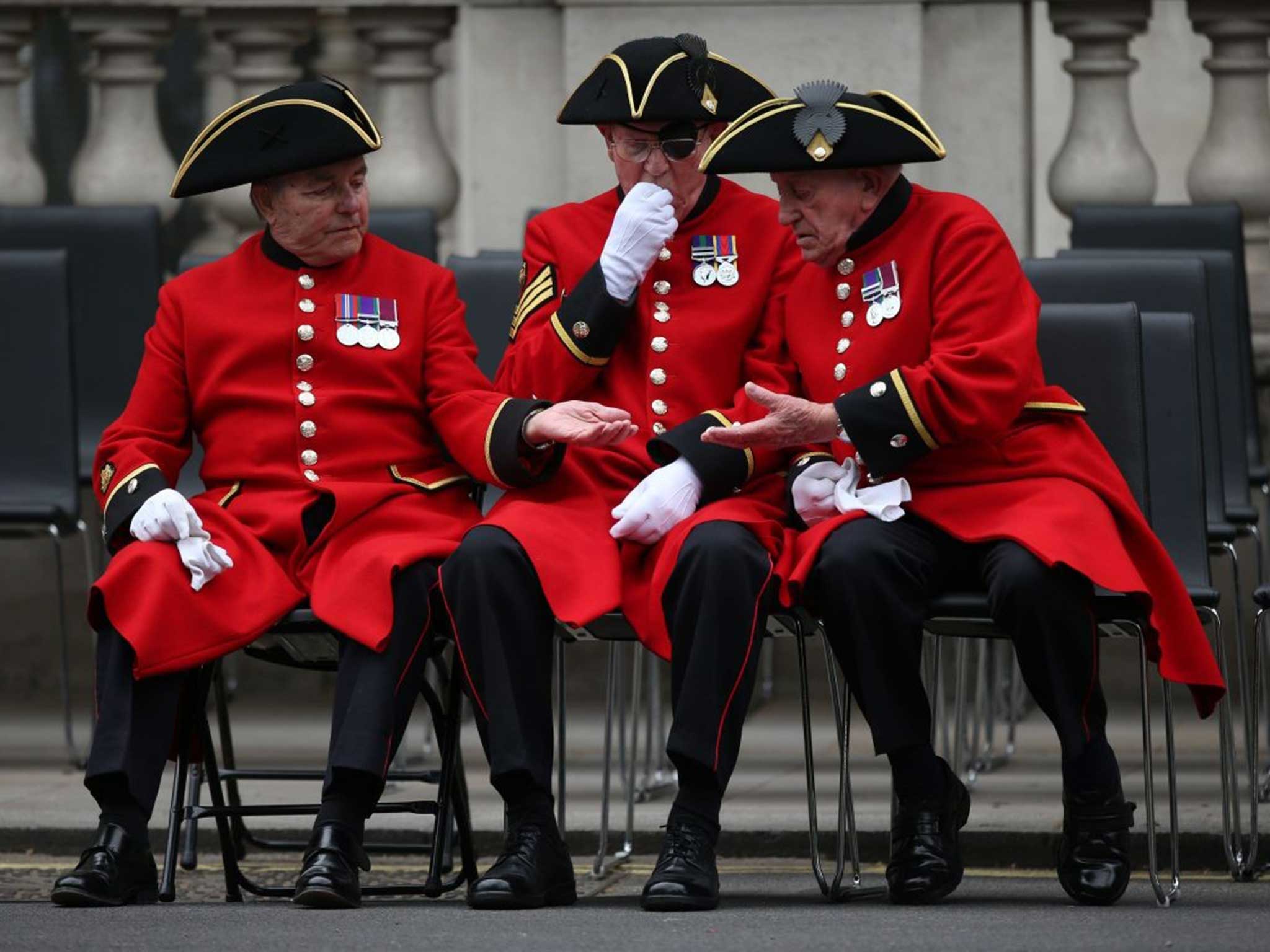
Similar ceremonies were held across Britain. In Cardiff, an air raid siren sounded the beginning and end of the two-minute silence. In Edinburgh, residents recreated a street party, one of the spontaneous outpourings of glee attended by more than a million people in 1945. Later, village halls and public spaces across Britain hosted parties where participants were encouraged to attend in 1940s dress.
Today, churches have been encouraged to ring their bells at 11am. Later, VE Day 70: A Party to Remember, will be the focus of celebrations, as performers including Katherine Jenkins, Alfie Boe and Status Quo give a televised BBC concert at Horse Guards Parade.
Tomorrow, the Archbishop of Canterbury will lead a Service of Thanksgiving at Westminster Abbey before a parade of more than 2,000 people processes towards Whitehall, passing under the balcony from which Winston Churchill waved at crowds after his speech.
Join our commenting forum
Join thought-provoking conversations, follow other Independent readers and see their replies
Comments